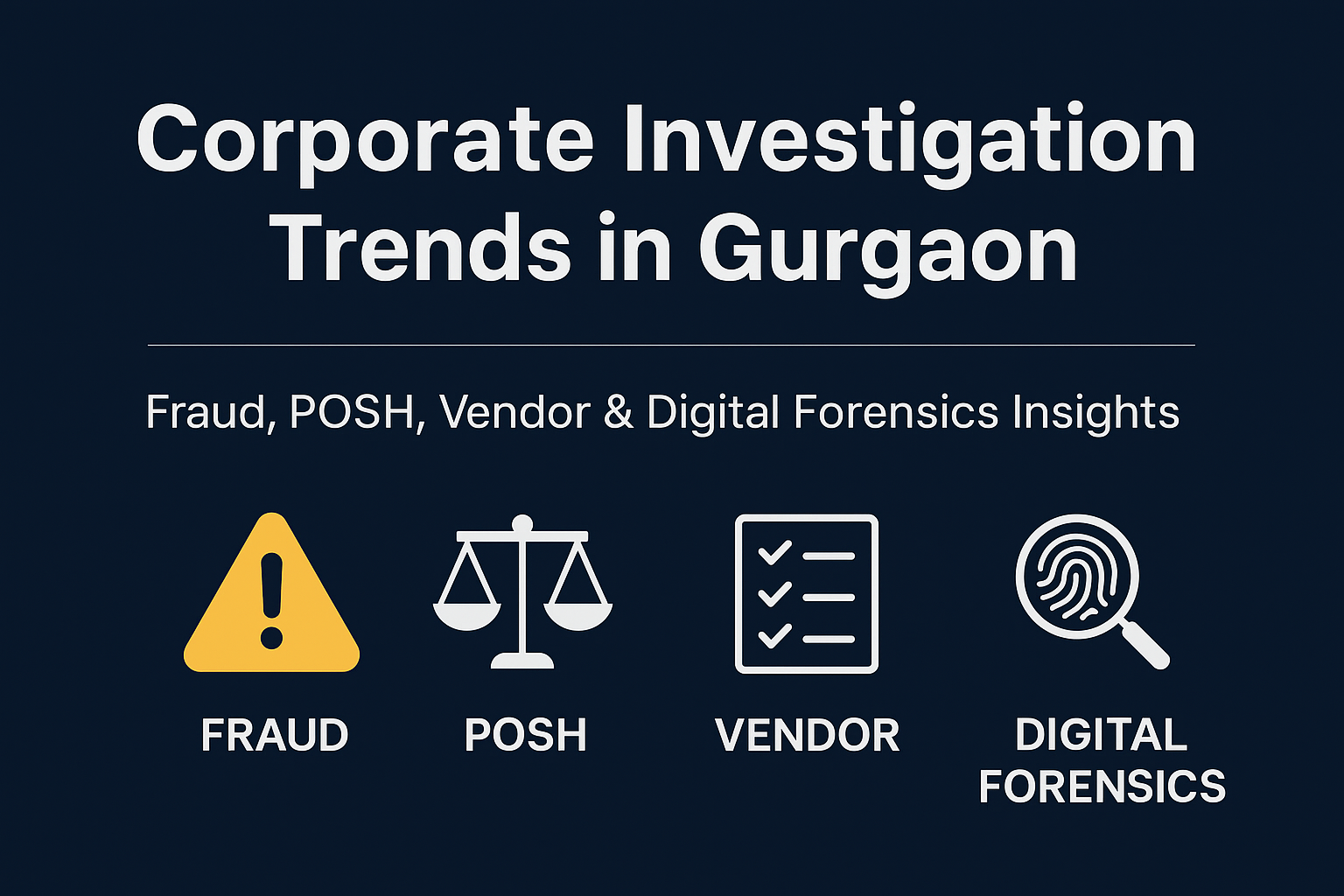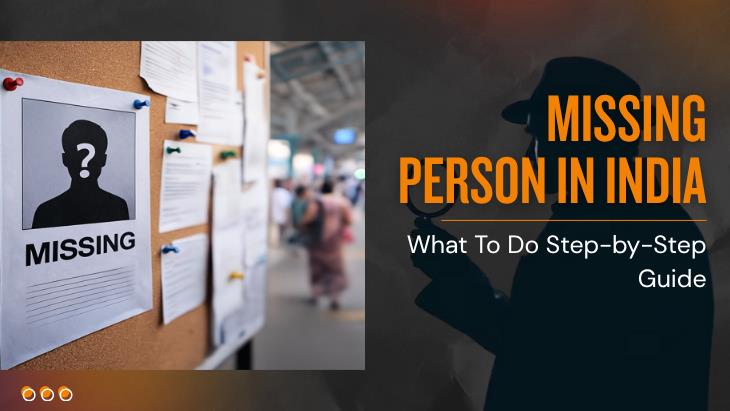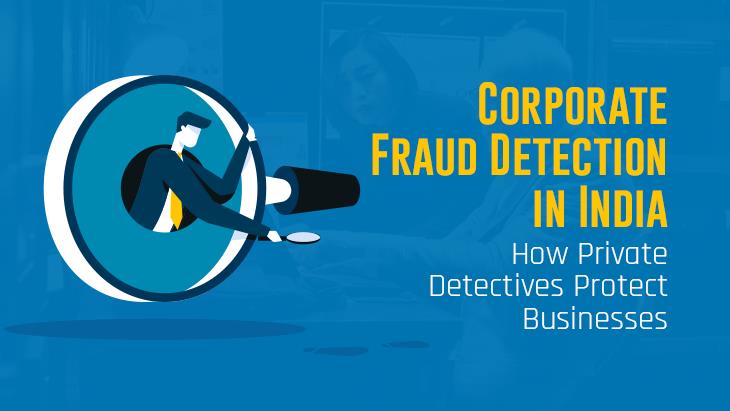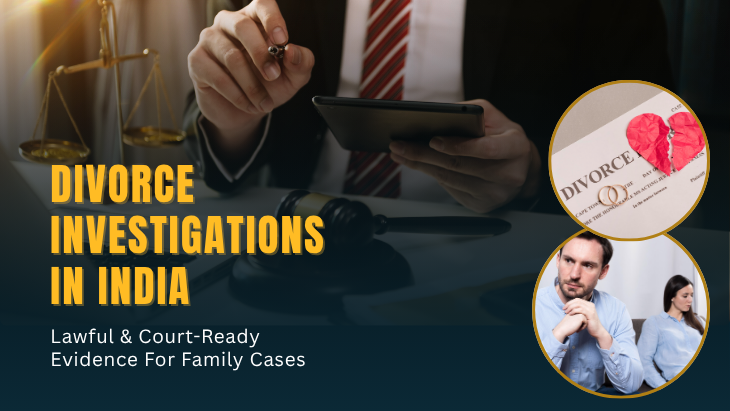Walk into any office tower in Cyber City or Golf Course Road, and you’ll feel it immediately: Gurgaon (Gurugram, officially) runs on speed. Deals are fast, hiring is fast, growth is fast—and, unfortunately, so are the risks that come with that pace.
Over the last few years, corporate investigations in Gurgaon have quietly moved from “rare crisis” territory to something closer to routine business hygiene. Fraud probes, workplace misconduct inquiries, vendor due diligence, cyber-forensics reviews—what used to be exceptional is now part of the normal risk landscape for companies based here.
If you’re in HR, legal, finance, or a leadership role in Gurgaon, understanding how these investigations are changing isn’t just “nice to know.” It’s the difference between getting ahead of a problem and watching it explode in the media, in court, or on social platforms.
This article walks through the major corporate investigation trends shaping Gurgaon right now, why they’re emerging, and what you can practically do about them.
Why Gurgaon Has Become a Hotspot for Corporate Investigations
Before we zoom into the trends, it’s worth asking: why here?
Gurgaon is a perfect storm of risk and opportunity:
- High-value sectors with sizable clusters include IT/ITeS, BPO, fintech, e-commerce, logistics, real estate, hospitality, and many Fortune 500 captives and Multinational Corporations.
- Fast scaling and high employee attrition: Rapid scaling combined with a predominantly younger workforce tends to foster weaker systems and greater scope for mistakes, or worse, malfeasance.
- Significant dependency on external entities: Subcontracting, vendors, channel partners, consultants, and external collaborators create a complicated, and sometimes opaque, ecosystem.
- Hybrid and remote working arrangements: Geographically dispersed teams and BYOD policies create challenges for monitoring, oversight, and the collection of evidence.
Add to the mix a high volume of transactions, sensitive data, a global footprint, and strong competition, and the conditions are ripe for unintentional or deliberate misconduct to occur when preventive mechanisms are lacking.
That’s exactly what’s happening, and investigations are the visible response.
Digital & Cyber-Driven Investigations Are Now the Norm
A decade ago, many internal probes still started with paper trails and physical documents. In Gurgaon today, almost every serious investigation has a digital core.
What’s driving this?
- Cloud-first operations: Most companies here run on SaaS tools—Slack, Teams, Google Workspace, M365, CRM platforms, HRIS systems. Misconduct leaves digital footprints across all of them.
- Cybercrime involving corporate hubs: Phishing, data theft, account takeovers, ransomware, and exfiltration of trade secrets are no longer edge cases. Gurgaon’s dense concentration of high-value targets makes it attractive to organised groups and disgruntled insiders.
- Hybrid work and personal devices: When employees are working from home, or even on their own laptops and phones, the line between personal and corporate data becomes blurry… And that is challenging from a security perspective, and from the perspective of being able to in the future collect sound evidence that would stand in a court of law.
How Investigations Are Conducted
Modern corporate investigations in Gurgaon often intertwine:
- Email and chat analysis (Outlook, Gmail, Teams, Slack, WhatsApp for work)
- Endpoint forensics (laptops, phones, external drives)
- Access log reviews (VPN, SSO, cloud storage, admin activity)
- Social media and OSINT (open source intelligence to corroborate claims or to draw a relational map)
The days of “We will just ask around to see what the situation is” are over. If a company wants to take matters to the court or use other legal avenues, digital forensics and a proper chain-of-custody will no longer be on a wish list. It is a must.
Practical takeaway: If you’re responsible for investigations, build early relationships with a digital forensics provider (or internal IT/security team) rather than scrambling the first time you need help. Agree in advance on how data will be preserved, reviewed, and documented.
Deeper Third-Party & Vendor Due Diligence
Gurgaon’s corporate machine runs on vendors—staffing agencies, logistics partners, resellers, managed service providers, marketing agencies, payment gateways, and more.
The flip side: a significant number of investigations now start outside the company’s direct payroll.
What’s changing?
- Regulatory pressure: SEBI, RBI, and global regulators demand stronger oversight of third parties, especially for listed companies and regulated sectors like BFSI and fintech.
- Fraud via vendors: Ghost employees, inflated invoices, kickback schemes, fake credentials, and conflicts of interest involving procurement or operations staff.
- Reputational exposure: ESG and brand impact when a vendor is caught in labor violations, harassment cases, data breaches, or bribery.
Due diligence is becoming more forensic.
- Rather than a one-time review of a documents, organisations are moving to: More in-depth review of vendors and their key directors and shareholders
- More thorough reviews of potential financial red flags (e.g., sudden spikes in revenue, related-party transactions, tax avoidance)
- Operational site visits and assessments for critical vendors More, ongoing reviewing and monitoring, beyond just accessing onboarding checks
Practical takeaway: If your organisation is working with critical vendors in Gurgaon, your organisation should calibrate your vendor onboarding and renewal process to be more risk-based in its due diligence. High-risk vendors should be more closely and thoroughly scrutinized. Not all vendors should be treated the same.
Workplace Misconduct & Culture-Based Investigations Are Rising
One of the most noticeable Gurgaon trends is the increase in workplace investigations tied to culture—harassment, discrimination, bullying, retaliation, and toxic leadership.
Several factors are converging:
- Greater awareness of POSH and employee rights: Employees in Gurgaon are far more aware of their rights under the POSH Act and internal workplace policies, and more willing to speak up—internally or on social media.
- Informal communication channels: Misconduct now often happens in semi-private spaces: WhatsApp groups, team chats, late-night calls, and offsite events. Evidence is there, but scattered and sensitive.
- Pressure-cooker environments: Aggressive targets, long working hours, and “winner-takes-all” sales cultures are occasionally taken too far into the domain of abusive managerial practices, which can lead to formal complaints.
How these investigations are handled is changing
Companies are changing the way they address these complaints for the better. Companies are:
- More frequently Establishing independent Internal Committees (ICs) for POSH compliance
- Bringing in External Investigators for sensitive and/or senior cases
- Training managers and IC members on neutral interview techniques and bias awareness
- Exhausting documentation in anticipation of potential litigation or regulatory scrutiny
Practical takeaway: If you are in HR or compliance, you should invest in having well designed and easily accessible reporting mechanisms and additionally you should ensure that employees have trust in the reporting mechanisms. The quality of your first response to a complaint is a strong indicator of whether a complaint will be resolved internally.
Whistleblower-Driven Investigations & ESG Pressures
Whistleblowing isn’t new, but its tone in Gurgaon has shifted. Allegations are increasingly framed not just as “fraud” or “misconduct,” but as ethics, governance, and ESG failures.
Why this matters now
- Listed and global companies face stricter expectations under the Companies Act, SEBI LODR regulations, and foreign frameworks like the US FCPA and UK Bribery Act.
- Whistleblower channels are maturing—some Gurgaon-based companies now use external hotlines or independent ombuds services.
- Employees are more willing to go outside the company—to regulators, media, or LinkedIn—if they feel internal channels are compromised.
Investigations triggered by whistleblowers tend to be:
- Complex and cross-functional (finance, procurement, HR, operations, legal)
- Time-sensitive, because leaks are a real risk
- Highly sensitive in terms of retaliation and confidentiality concerns
Practical takeaway: If your whistleblower process is essentially “email the CEO or HR head,” it’s time to upgrade. Consider anonymous reporting, clear protocols for triage, and safeguards to protect both the reporter and the integrity of the investigation.
Background Checks & Continuous Screening Are Tightening
With high churn and intense hiring in Gurgaon, poor vetting used to be common. That’s changing, largely because too many companies have been burned.
Typical triggers for investigations:
- Senior hires with inflated or fake credentials
- Employees hiding prior disciplinary issues or regulatory bans
- Moonlighting or conflicts of interest involving competitors or vendors
In response, firms are:
- Implementing robust pre-employment screening (education, employment history, criminal records where legally permissible, reference checks)
- Conducting periodic checks for critical roles (finance, compliance, IT security, procurement, senior leadership)
- Reviewing digital footprints where policy allows, especially for roles tied to brand, risk, or public-facing positions
Practical takeaway: Background checks shouldn’t be just a box-ticking exercise handed to the cheapest vendor. Decide what “high-risk role” means in your context and calibrate the depth of vetting accordingly.
Cross-Border & Multi-Jurisdictional Investigations
Gurgaon is deeply plugged into global operations. It’s common to see:
- Shared service centers serving 10+ countries
- Regional headquarters based out of Cyber City
- Global policies colliding with local law and practice
What this means for investigations
- Different legal standards and expectations: Data privacy (especially with the Digital Personal Data Protection Act, 2023), employment law, evidence admissibility, and interview protocols vary by jurisdiction.
- Multiple stakeholders: Global legal teams, local HR, external counsel in India and overseas, board committees, and sometimes auditors.
- Coordination challenges: Aligning scope, timelines, and documentation so the investigation stands up to scrutiny in more than one country.
Practical takeaway: If you’re part of a multinational with operations in Gurgaon, make sure your global investigations framework explicitly addresses Indian legal and cultural nuances. Don’t copy-paste a US or EU process and assume it will hold here.
📍 Operating in Mumbai? Strengthen your organisation with trusted corporate investigations. Explore our Detective Agency in Mumbai for fraud checks, due diligence & workplace inquiries.
Analytics and AI Are Entering the Investigation Toolkit
While still evolving, there’s a clear move towards using data analytics and AI-assisted tools in Gurgaon-based investigations.
You’ll see:
- Keyword-based and concept-based email review rather than manual inbox trawling
- Pattern analysis in expense claims, vendor payments, and payroll for fraud red flags
- Clustering and timeline tools to reconstruct events from scattered data points
Important nuance: these tools do not replace experienced investigators. They speed up review and surface patterns, but judgment—especially on intent, context, and fairness—still depends on human expertise.
Practical takeaway: If your organisation handles large volumes of data in internal investigations, consider investing in or accessing e-discovery / review platforms. They’re no longer just for big litigation firms.
How Gurgaon Companies Are Evolving Their Investigation Approach
Across sectors, a few shifts are visible in how companies here handle corporate investigations.
1. Moving from ad-hoc to structured processes
Instead of scrambling each time:
- Many firms now have documented investigation policies covering scope, governance, timelines, and reporting lines.
- There’s more clarity on who leads what (HR vs. legal vs. compliance vs. external counsel) depending on the allegation.
2. Separating fact-finding from decision-making
To minimise bias and conflicts of interest:
- Fact-finding is increasingly handled by an independent investigator or team.
- Disciplinary or remedial decisions are taken by a separate panel or leadership group, based on that report.
3. Investing in training and awareness
HRBPs, line managers, IC members, and even investigators are getting:
- Interview skills training
- Guidance on handling trauma, sensitive complaints, and retaliation claims
- Basic exposure to digital evidence and documentation standards
Practical takeaway:
If your investigations rely heavily on “whoever is available” with no training, that’s a vulnerability. One poorly run investigation can cause more damage than the original incident.
Common Mistakes in Corporate Investigations (Especially Visible in Gurgaon)
Certain missteps crop up again and again:
- Jumping straight to conclusions: Acting on rumours or one person’s narrative without a structured fact-finding process.
- Using unofficial channels: Running inquiries over WhatsApp or personal email, leaving no defensible record and risking data leaks.
- Letting the accused or interested parties influence the process: Allowing reporting lines, friendships, or seniority to skew who is interviewed, what’s asked, or what gets recorded.
- Ignoring the digital trail: Failing to preserve or review emails, chats, logs, and devices early, so key evidence is overwritten, deleted, or challenged later.
- Poor communication with stakeholders: Either saying too little, creating suspicion and gossip, or saying too much, exposing the company to defamation or privacy issues.
Practical takeaway: If you recognise some of these in your own organisation, start small: formalise your intake and triage process, and put basic guardrails around who leads investigations and how evidence is handled.
Choosing a Corporate Investigation Partner in Gurgaon
Not every matter needs an external investigator, but many do—especially where senior people are involved, conflicts exist, or technical forensics are required.
When evaluating an investigation firm or consultant a leding detective agency in Gurgaon, look beyond glossy brochures. Consider:
- Local + sector experience
Have they handled cases in your industry and in the NCR context, not just generic “corporate” work? - Legal alignment
Do they understand Indian law (Companies Act, POSH, DPDP Act, labour laws) and, if relevant, global regimes like FCPA/UK Bribery Act? - Digital forensics capability
Can they handle device imaging, email reviews, and secure data handling themselves or via trusted partners? - Independence and conflict management
Will they push back if management tries to steer the outcome? How do they document and defend their work? - Reporting quality
Ask to see sample (anonymised) reports. Are they clear, factual, and structured, or vague narratives that won’t stand scrutiny?
Practical takeaway:
A good investigation partner should make you slightly uncomfortable—in the sense that they’re willing to tell you what you don’t want to hear, backed by evidence and sound reasoning.
Conclusion
Corporate investigation trends in Gurgaon reflect the city itself: fast-moving, high-stakes, and increasingly sophisticated.
Digital forensics, deeper vendor scrutiny, culture-focused probes, whistleblower-led investigations, cross-border complexities, and data-driven tools are no longer fringe concerns. They’re the new normal for companies that operate in and around this hub.
If you’re responsible for people, money, data, or reputation in a Gurgaon-based organisation, a practical next step is to quietly assess where you stand:
- Do you have clear, trusted channels for reporting concerns?
- Is there a documented, fair, and defensible investigation framework?
- Are your teams trained and your external partners identified before a crisis hits?
- Can you preserve and review digital evidence quickly and properly?
You don’t need to transform everything overnight. Start with one area—whistleblower handling, POSH investigations, or vendor due diligence—and strengthen it. Most mature investigation frameworks in Gurgaon didn’t appear in a quarter; they were built case by case, lesson by lesson.
If the patterns you’re seeing inside your company are starting to worry you, that’s usually the right time to act—not when the first notice from a regulator or the first media query lands in your inbox.
From vendor fraud to POSH inquiries, get complete NCR-wide support with our expert Detective Agency in Delhi.





